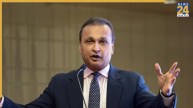As India gears up for the Union Budget 2025-26, the US-India Tax Forum–a specialized Tax Policy Forum under the US-India Strategic Partnership Forum (USISPF)–has presented an ambitious set of recommendations aimed at bolstering the nation’s global economic standing.
Comprising around 200 member companies, the Forum serves as a platform for dialogue on critical tax policy issues, connecting Government of India policymakers, global tax experts, and the business community to champion innovative and forward-thinking tax reforms.
In response to invitations from the Ministry of Finance, the Tax Forum conducted multiple consultations and presented its recommendations on three occasions. These proposals are designed to attract fresh investments, simplify tax structures, and position India as a global growth leader.
What Tarun Bajaj Said?
Tarun Bajaj, Chairperson of the US-India Tax Forum and former Revenue Secretary, said, “The Union Budget 2025-26 comes at a critical juncture for India’s economic trajectory. As global headwinds persist, it is imperative for India to prioritize reforms that foster investor confidence, simplify the tax regime, and provide targeted incentives for sectors with transformative potential.”
He added, “Recommendations like rationalizing TDS structures, extending concessional tax rates for greenfield manufacturing, and supporting GIFT City as a global financial hub address systemic challenges while opening avenues for sustainable growth.”
One of the central recommendations focuses on revolutionizing direct taxation. The Forum suggests simplifying the Tax Deduction at Source (TDS) structure to just two or three rates, reducing compliance burdens and enabling businesses to prioritize growth.
To enhance India’s competitiveness, it proposes aligning tax rates for foreign bank branches with domestic banks and introducing a concessional 10% tax rate on dividend income for Foreign Portfolio Investors (FPIs) to attract capital inflows.
Furthermore, the Forum advocates for tax exemptions on dividends and financial transactions within GIFT City to transform it into a global financial hub. The expansion of Safe Harbor Regulations (SHR) and a more efficient Advance Pricing Agreement (APA) process were also highlighted as critical measures for creating a predictable and transparent tax environment.
US-India Tax Forum: More Details
Sectoral growth is another priority area. The recommendations include extending concessional tax rates for greenfield manufacturing projects beyond March 2024, targeting high-growth sectors like renewable energy, semiconductors, and electric vehicles. To strengthen the industrial ecosystem, the Forum also proposes introducing a reduced 15% tax rate for Maintenance, Repair, and Overhaul (MRO) firms.
In the healthcare sector, reducing tariffs on critical life-saving drugs and extending exemptions for certain medicines under Patient Assistance Programs (PAP) are emphasized to ensure equitable access to essential treatments.
Additionally, targeted incentives for renewable energy manufacturers and measures to facilitate electric vehicle adoption were recommended to drive sustainability and innovation. The Forum also suggests overhauling indirect taxation by simplifying the customs tariff structure to a three-tier system with rates of 0%, 5%, and 10%.
This alignment with international standards is expected to attract investments in key sectors such as electronics manufacturing. Recognizing the growing significance of digital economies, the Forum proposes introducing refund mechanisms for the Equalisation Levy (EL) in cases of revised tax liabilities and simplifying tax return forms for foreign companies without permanent establishments.
The USISPF’s recommendations are not limited to immediate reforms but also chart a roadmap for India’s sustained economic growth. Simplifying tax structures, fostering sectoral advancements, and reducing compliance hurdles are seen as vital steps toward achieving the government’s vision of becoming a USD 5 trillion economy. With the world’s fastest-growing major economy, India is poised to leverage these reforms to solidify its position as a global leader.
(ANI Copy)
ALSO READ: PepsiCo Eyes Haldiram: Battle For Haldiram Heats Up – Details Inside













